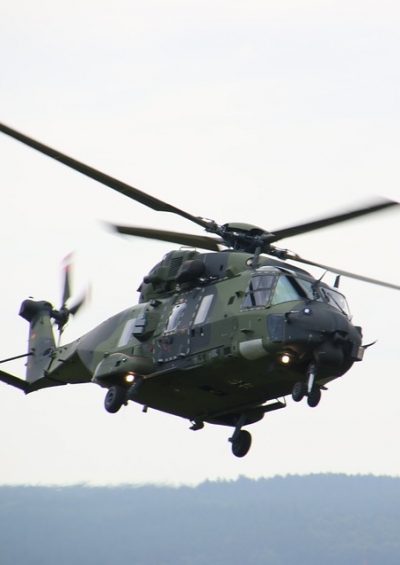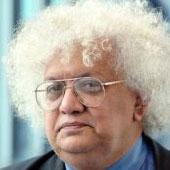High Time for Europe to Wake Up
Why it is in Germany’s own self-interest to take Donald Trump’s policy impulses on trade and defense seriously.
August 24, 2018

Donald Trump has been treated in Europe as a figure of fun and disrespect, if not one deserving outright contempt. The U.S. President is certainly determined on refashioning U.S. defense policy as well as the country’s trade policy.
In pursuing those twin goals, he enjoys a level of popular support that extends well beyond his base in the Republican Party.
Understandably, the idea that the United States will no longer be forever generous with spending its own money for Europe’s defense sits uneasily with the Europeans.
Germany shortsighted
The Germans cut a particularly unfortunate picture in this regard. While they boast record-breaking trade surpluses, they claim poverty when it comes to establishing a proper level of defense spending.
This is all the more astounding as the basic readiness level of the German military’s equipment borders on the ridiculous at this stage. A nation generally so proud of its infrastructure and maintaining machinery ought to be embarrassed.
And yet, even Heiko Maas, the otherwise very courageous new German foreign minister, clings to spending 1.5% of German GDP on defense as a big challenge and a real stretch. Apparently, his party – the SPD – wouldn’t allow him to say anything else.
Germany in the crosshairs
In his own simple, but effective way, Trump ranks countries by the size of their trade surplus with the United States and he wants to settle the score bilaterally with each of them. Generosity vis-a-vis the EU is out.
By the same token, Trump is not worried about Russia as its meager trade balance with United States is not worrying for him. The only saving grace for Europe is that Trump’s top priority is if course China.
Europe must reassess the redesigned geopolitical order
The redesigned geopolitical order thus needs careful reassessment as far as Europe is concerned. The end of the cold war almost 30 years ago has made the North Atlantic Treaty Organization basically obsolete.
Most conflicts involving the United States over the past 25 years, mainly in the Middle East, have been fought with minimal if any help from its NATO partners, with the exception of the UK.
The free-riding Western European members apparently do not think that the region’s security is their concern, which is downright bizarre. Or they continue to believe the United States will take care of it.
Rediscovering self-interest on defense
As it stands, Western European countries were so elated by the Franco-German rapprochement after 1945 that they have the delusion of living in some sort of post-Kantian era of Universal Peace.
This is why they have neglected their own defenses and decided to free ride on the United States However, the much-prolonged U.S. largesse is about to end. Trump will definitely reduce U.S. spending on NATO — if he does not dismantle it altogether.
Europe’s military weakness has been obvious to everyone else except the leaders of the EU themselves. They couldn’t tackle the Yugoslavia crisis without U.S. help. Next, the UK and France mishandled Libya, and the United States quite rightly refused to bail them out.
The new situation facing Europe is the crisis of mass immigration across the Mediterranean and from further East.
Therefore, Europe’s defense challenges will not come so much from Russia as from the Mediterranean and the Middle East. As a consequence, much as Europe’s current political establishment tries to deny it, it will now have to spend serious money on defense.
That is made all the more difficult as, apart from France, Western Europe will have no capable army now, given that the UK is about to Brexit. That is only one reason why the EU will need to sign a formal security pact with the UK.
Germany for sure needs to make up the huge backlog of defense underspending over the decades. This move has to happen not to please the United States, but in Germany’s own self-interest.
Nearby challenges
Beyond the challenge that is the Middle East (and beyond), much as Germans may wish otherwise, the Russia problem may not disappear. From the way he has behaved over Ukraine, one can guess that Putin just wants to consolidate the old borders of Russia.
This puts the Baltic countries at possible risk. They are the only European countries that can credibly claim still needing U.S. protection. Trump should therefore be dissuaded from doing anything rash in this area.
The rest of Europe will have to grow up and defend itself. About time, too.
Takeaways
It is in Germany’s own self-interest to take Donald Trump’s policy impulses on trade and defense seriously.
Western European countries were so elated by the Franco-German rapprochement after 1945 that they have the delusion of living in some sort of post-Kantian era of Universal Peace.
Europe's military weakness has been obvious to everyone else except the leaders of the EU themselves.
Europe's defense challenges will not come so much from Russia as from the Mediterranean and the Middle East. it will now have to spend serious money on defense.
